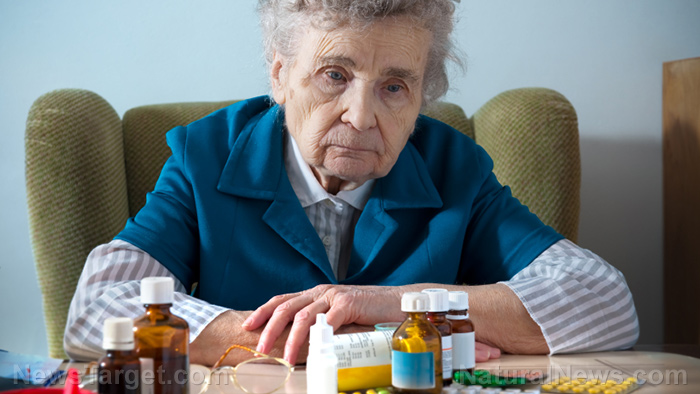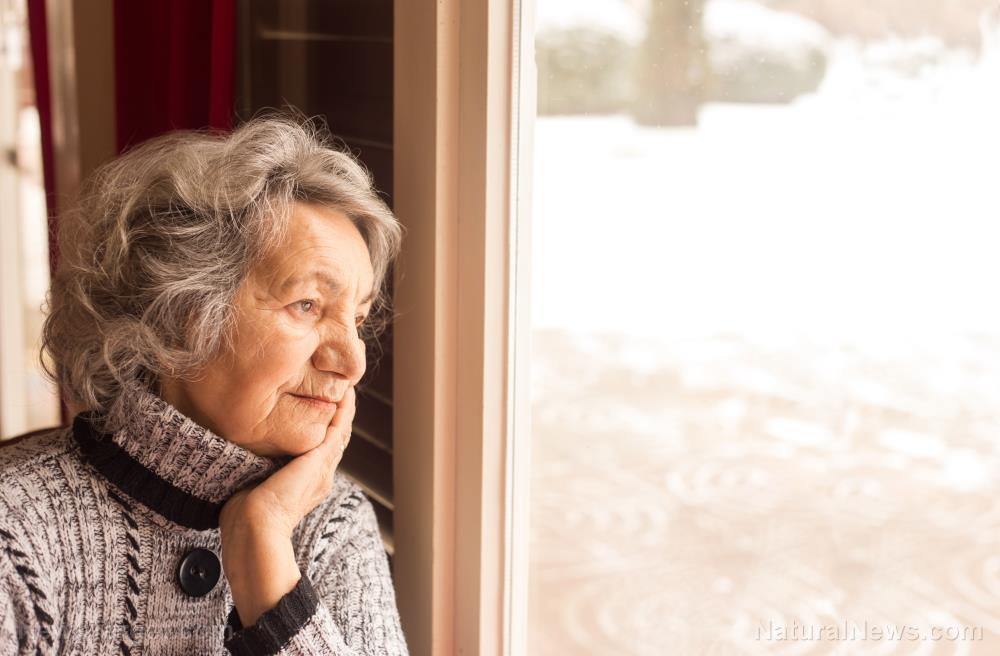Research shows doctors avoid talking to elderly patients about their mental health and just throw meds at them instead
05/24/2019 / By Tracey Watson

There is nothing easy about getting older. Limited mobility, cognitive decline and the death of loved ones can leave the elderly feeling depressed and lonely. Studies have found that older people are also more likely to develop clinical depression after being diagnosed with a serious health condition. For example, around a quarter of all people who experience a stroke will become depressed.
According to Mental Health America, around 2 million of the 34 million Americans who are older than 65 – close to 6 percent – suffer with depression. Symptoms are often triggered by the onset of common age-related illnesses like arthritis, heart disease, cancer, Parkinson’s and Alzheimer’s disease.
Nonetheless, a recent meta-analysis of 27 studies examining psychological treatment of the elderly, published in the British Journal of General Practice, found that they are often just handed antidepressant medications rather than being sent for talk therapy.
This, despite the fact that studies have found therapy to be a more effective form of treatment for depression, and even though many of these pensioners have conveyed their willingness to talk about their mental health. (Related: Depression drugs linked to falls in elderly.)
Fobbed off with antidepressant drugs
While it’s true that antidepressant drugs like selective serotonin reuptake inhibitors (SSRIs) are grossly overprescribed in general, the study – which was conducted by a research team from University College London and the University of Bristol in the U.K. – found that this is even worse among seniors.
As reported by The Guardian, the study found that doctors tend to avoid discussing mental health issues with those over the age of 65, prescribing antidepressant drugs for 87 percent of those who show signs of depression rather than sending them for therapy.
In the U.K., for example, around 1.4 million people were referred to the NHS for therapy to treat their depression. Of the 1 million who entered therapy, only 74,503 – or 7.4 percent – were over the age of 65, even though depression is extremely common in this age group.
The research team found that in some areas, only 3.5 percent of people older than 65 are referred to a therapist for cognitive behavioral therapy. (Related: Omega-3 fats hold the key to curing depression in the elderly.)
The problem gets even more pronounced in the over-85s, who are five times less likely to be referred to therapy than people between the ages of 55 and 59.
The Guardian reported:
Older people may be reluctant to access NHS help because they fear they will be stigmatised, or that nothing can be done about their condition anyway, says the report. In addition, GPs often use their appointments to discuss the older person’s physical health, rather than their mental well-being, they found. Some fail to act on cues suggesting that over-65s want to talk about how they are feeling.
Their conclusions are based on a review of the evidence from 27 studies done in western countries, including eight from the U.K., into how health professionals deal with patients over 65 who have depression.
Antidepressants vs talk therapy
It is important to note that studies have found talk therapy to be at least as effective as chemical medications in the treatment of depression, with the added benefit that patients are less likely to become depressed again in the future, even after therapy has ended.
On the other hand, the best and newest chemical treatments for depression result in sustained recovery (no remission) in only one-third of patients. And they carry the risk of serious side effects.
Clearly, doctors need to take the time and effort to really speak to patients exhibiting symptoms of depression – including the elderly – and refer them to a caring, qualified therapist for help, rather than just handing out yet another prescription for an antidepressant.
Learn more at Psychiatry.news.
Sources include:
Tagged Under: age discrimination, aging secrets, Antidepressants, bad doctors, Big Pharma, Counseling, depression, elderly patients, mental health, preventionr, psychiatric drugs, Psychology, remedies, seniors, talk therapy, the elderly, therapy
RECENT NEWS & ARTICLES
COPYRIGHT © 2017 PSYCHIATRY NEWS



















